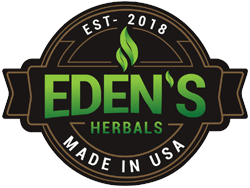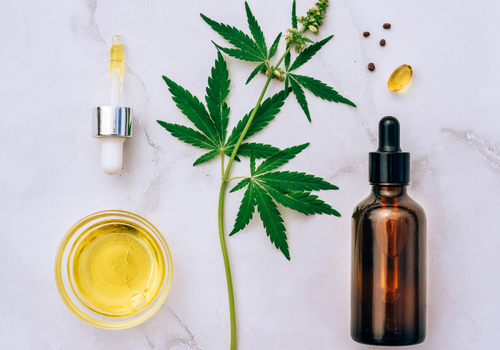 Welcome class, today we will be discussing the differences between CBD topicals vs CBD oils. CBD, or cannabidiol, is a compound found in the cannabis plant that has gained popularity in recent years for its potential health benefits. As you may already know, CBD can be consumed in various forms, including oils, edibles, capsules, and topicals. In this lesson, we will be focusing on the two most popular forms of CBD: CBD oils and topicals. When it comes to CBD topical vs oil which would work better for you?
Welcome class, today we will be discussing the differences between CBD topicals vs CBD oils. CBD, or cannabidiol, is a compound found in the cannabis plant that has gained popularity in recent years for its potential health benefits. As you may already know, CBD can be consumed in various forms, including oils, edibles, capsules, and topicals. In this lesson, we will be focusing on the two most popular forms of CBD: CBD oils and topicals. When it comes to CBD topical vs oil which would work better for you?
First, let's talk about CBD oils. CBD oil is ingested, typically in the form of tinctures, capsules, or edibles. The purpose of consuming CBD oil is to provide systemic relief for a wide range of health conditions. When ingested, the CBD oil enters the bloodstream and interacts with the body's endocannabinoid system (ECS) throughout the body, potentially providing relief for conditions such as anxiety, depression, pain, and insomnia. It is important to note that CBD oils are non-psychoactive, meaning that they do not produce the "high" associated with THC.
CBD oil comes in many forms of edibles.
CBD tinctures: These are liquid extracts that are taken sublingually (under the tongue) using a dropper. They are typically formulated with CBD extract and a carrier oil, such as coconut oil or hemp seed oil, and are often used for systemic pain relief, anxiety, and insomnia.
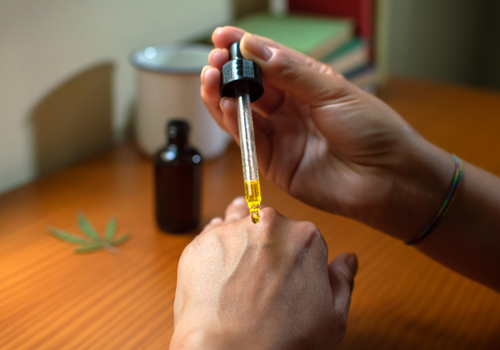 CBD capsules: These are gel capsules filled with CBD extract. They are taken orally, like a supplement, and are often used for systemic pain relief, anxiety, and insomnia.
CBD capsules: These are gel capsules filled with CBD extract. They are taken orally, like a supplement, and are often used for systemic pain relief, anxiety, and insomnia.
CBD edibles: These are food products, such as gummies, chocolates, or cookies, that are infused with CBD extract. They are taken orally and are often used for systemic pain relief, anxiety, and insomnia.
CBD vaporizers: These are electronic devices that vaporize CBD extract, allowing it to be inhaled. They are often used for systemic pain relief, anxiety, and to help with quitting smoking.
CBD oral sprays: These are liquid sprays that are taken sublingually (under the tongue) using a spray nozzle. They are formulated with CBD extract and are often used for systemic pain relief, anxiety, and insomnia.
Now, let's talk about CBD topicals in this lesson about CBD topical vs oil. CBD topicals are creams, lotions, and balms that are applied directly to the skin. The purpose of using CBD topicals is to provide localized relief for pain, inflammation, and other skin conditions. When applied to the skin, CBD topicals interact with the body's ECS through the CB1 and CB2 receptors located in the skin. This interaction can help to reduce pain and inflammation in the affected area. Like CBD oils, CBD topicals are also non-psychoactive, meaning that they do not produce the "high" associated with THC.
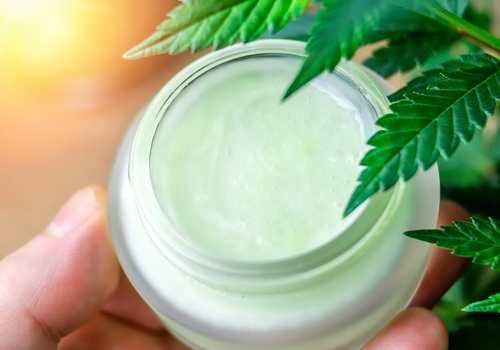 CBD topicals come in various forms as well.
CBD topicals come in various forms as well.
CBD creams: These are typically formulated with a combination of CBD extract and moisturizing ingredients such as shea butter or coconut oil. They are applied directly to the skin and are often used for localized pain relief and to reduce inflammation and redness.
CBD lotions: Similar to creams, lotions are formulated with a combination of CBD extract and moisturizing ingredients. They are applied directly to the skin and are often used for localized pain relief and to moisturize dry, itchy skin.
CBD balms: These are thick, semi-solid formulations that are often used for targeted pain relief. They are typically formulated with a combination of CBD extract, beeswax, and essential oils.
CBD salves: These are like balms but tend to be formulated with a higher concentration of CBD extract. They are often used for targeted pain relief and to reduce inflammation in a specific area of the body. You can find these mostly in a CBD roll-on stick.
CBD patches: These are transdermal patches that are applied directly to the skin. They are designed to deliver CBD extract through the skin and into the bloodstream for localized pain relief. They are often used for conditions such as arthritis, sore muscles, and headaches.
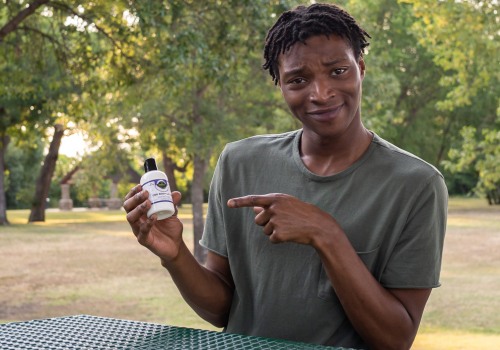 CBD oil vs topical for pain
CBD oil vs topical for pain
When it comes to CBD oil vs topical for pain, both CBD topicals and CBD oils have been shown to be effective. However, there are some key differences between the two. CBD topicals provide localized relief for pain and inflammation, which can be beneficial for conditions such as arthritis, sore muscles, and skin conditions. On the other hand, CBD oils that are ingested provide systemic relief, which can be beneficial for conditions such as chronic pain, fibromyalgia, and multiple sclerosis.
Side effects between CBD oil vs CBD topical?
In terms of side effects, both CBD topicals and CBD oils are generally considered safe. However, some people may experience mild side effects such as dry mouth, drowsiness, or changes in appetite when taking CBD oils. These side effects are typically mild and short-lived. CBD topicals, on the other hand, are applied directly to the skin and are less likely to cause side effects.
It is important to note that before using any form of CBD, it is best to consult with a healthcare professional to determine which form of CBD is best for your individual needs. Both CBD topicals and CBD oils have their own unique benefits and uses, and a healthcare professional can help you determine which form is best for your specific condition.
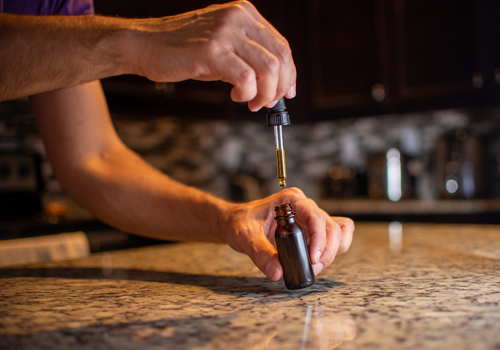 So, we may conclude that CBD topicals and CBD oils are two different forms of CBD, that have their own unique benefits and uses. CBD topicals provide localized relief for pain and inflammation, while CBD oils that are ingested provide systemic relief for a wide range of health conditions. Both are non-psychoactive and generally considered safe, but CBD oils may have mild side effects.
So, we may conclude that CBD topicals and CBD oils are two different forms of CBD, that have their own unique benefits and uses. CBD topicals provide localized relief for pain and inflammation, while CBD oils that are ingested provide systemic relief for a wide range of health conditions. Both are non-psychoactive and generally considered safe, but CBD oils may have mild side effects.
It is best to consult with a healthcare professional to determine which form of CBD is best for your individual needs.
Now, class, 'do we have any questions or comments about today's lesson on CBD topicals and CBD oils? If you do, don't be afraid to ask, please contact us and we can help you.
